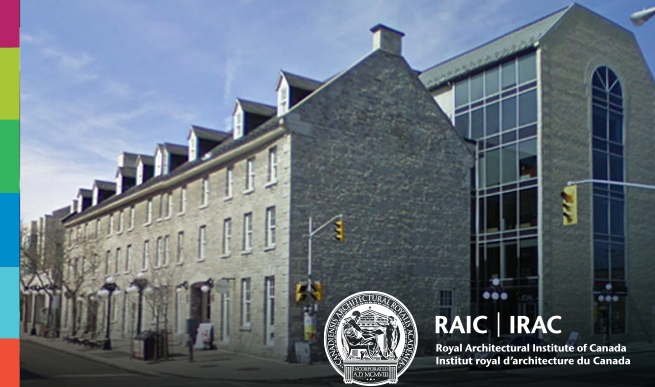![PhD Scholarships Open at Utrecht University [NL]](https://scholaridea.com/wp-content/uploads/2020/06/UtrechtUniversity.jpg)
PhD position – Changing Rivers, As part of NWO project ‘Geometric Algorithms for Perpetually Changing Channel Networks in Rivers and Estuaries
As part of NWO project ‘Geometric Algorithms for Perpetually Changing Channel Networks in Rivers and Estuaries’, we are looking for an enthusiastic PhD candidate. Do you have an interest in developing into a scientific researcher? Are you enthusiastic about working with large datasets of real rivers and clever software for the analysis of complex patterns? Are you curious about scale experiments under controlled laboratory conditions?
Tidal systems such as the Ems and Scheldt estuaries and the Wadden Sea have perpetually changing channels and shoals of sand, mud and vegetation. Understanding these dynamic patterns is scientifically fascinating, and highly important for management. We integrate state-of-the-art landscape scale experiments external linkwith computer models, field measurements, shallow coring and remote sensing observations on two planets. We explicitly address the interaction between the natural environment and human activities, such as coastal protection and nature restoration.
The NWO project ‘Geometric Algorithms for Perpetually Changing Channel Networks in Rivers and Estuaries’ aims to develop and test algorithms that recognize channels in estuaries, and connect them not only in space but also through time. You will use a large existing field data set of depth maps of the Western Scheldt estuary and collect new data in Metronome experiments under controlled laboratory conditions. These experiments are like a time machine: an entire estuary, that takes
centuries to form in reality, forms before your eyes and scanners in a few weeks, and changing the formative conditions is elementary. These experiments will therefore enable you to explore the long-standing fundamental problems of equilibrium, self-organization and chaos in estuarine morphology on spatial and temporal scales that are inaccessible in field data. You will also test the algorithms to address fundamental questions about dynamics of channel junctions, emergent network properties and the propagation of disturbances through the channel networks. The latter is of immediate societal relevance, since disturbances are mainly induced by dredging and dumping for shipping fairway maintenance. You will be part of a collaborative project team, led by Prof Bettina Speckmann of TU Eindhoven and Prof Maarten Kleinhans of Utrecht University.
Qualifications
We are looking for a candidate with:
- a MSc degree, or equivalent, in complexity science, earth science, physical geography, civil engineering or another closely related research field;
- demonstrable enthusiasm for experimentation and working with large datasets;
- affinity with numerical modelling of river/estuarine morphodynamics will be an asset;
- the willingness and flexibility to work in multi-disciplinary teams of scientists, specialist programmers and lab techno-wizards;
- English oral and writing skills; you should be able to demonstrate English language proficiency. We require a qualification English at C1 level (comparable to level 3 of the Lecturer Assessment Grid) or you should be willing to obtain this level by training;
- gardening skills, technical skills or artistic skills are welcomed.
Offer
You will be offered a PhD position (0.8 – 1.0 FTE), initially for one year with an extension to a total of four years upon a successful assessment in the first year, and with the specific intent that it results in a doctorate within this period. The gross salary ranges between €2,443 in the first year and €3,122 in the fourth year of employment (scale P according to the Collective Labour Agreement Dutch Universities) per month for a full-time employment.
Salaries are supplemented with a holiday bonus of 8% and a year-end bonus of 8.3% per year. In addition, Utrecht University offers excellent secondary conditions, including an attractive retirement scheme, (partly paid) parental leave and flexible employment conditions external link (multiple choice model). More information about working at Utrecht University external linkcan be found here.
About the organisation
A better future for everyone. This ambition motivates our scientists in executing their leading research and inspiring teaching. At Utrecht University external link, the various disciplines collaborate intensively towards major societal themes. Our focus is on Dynamics of Youth, Institutions for Open Societies, Life Sciences and Sustainability.
Utrecht University’s Faculty of Geosciences external linkstudies the Earth: from the Earth’s core to its surface, including man’s spatial and material utilisation of the Earth – always with a focus on sustainability and innovation. With 3,400 students (BSc and MSc) and 720 staff, the faculty is a strong and challenging organisation. The Faculty of Geosciences is organised in four Departments: Earth Sciences, Human Geography & Spatial Planning, Physical Geography, and Sustainable Development.
The Department of Physical Geography external linkexcels in research and education on BSc, MSc and PhD level. Our research focuses on processes, patterns and dynamics of Earth’s continental and coastal systems, and on the interaction between these physical and biological processes. This knowledge is essential for the sustainable management of our planet and to guarantee the availability of resources for the next generations.
You will be welcomed into a lively department that hosts an active PhD candidate community of more than twenty PhD students. You are offered an interesting position in which you can develop as a high level scientific researcher in a collaborative environment.
Additional information
For more information about this position, please contact:
Prof Maarten Kleinhans external link, via m.g.kleinhans@uu.nl. external link
Apply
Everyone deserves to feel at home at our university. We welcome employees with a wide variety of backgrounds and perspectives. To apply, please send the following documents via the ‘apply’ button below:
- Let us know what your motivation for this position is, why should we hire you? (1-page motivation letter);
- Send your resume, including a list of your publications if you have any;
- What are your research interests? (1-page statement of concrete research interests);
- Who can we contact as your references? (state the names and contact details of three references);
- Interviews will be held in June, either in person or via video call.
The application deadline is 31 May 2022.
![Postdoctoral and Research Opportunities at McGill University [CA]](https://scholaridea.com/wp-content/uploads/2020/06/mcgill-university-30-may-2019-768x402.jpg)

